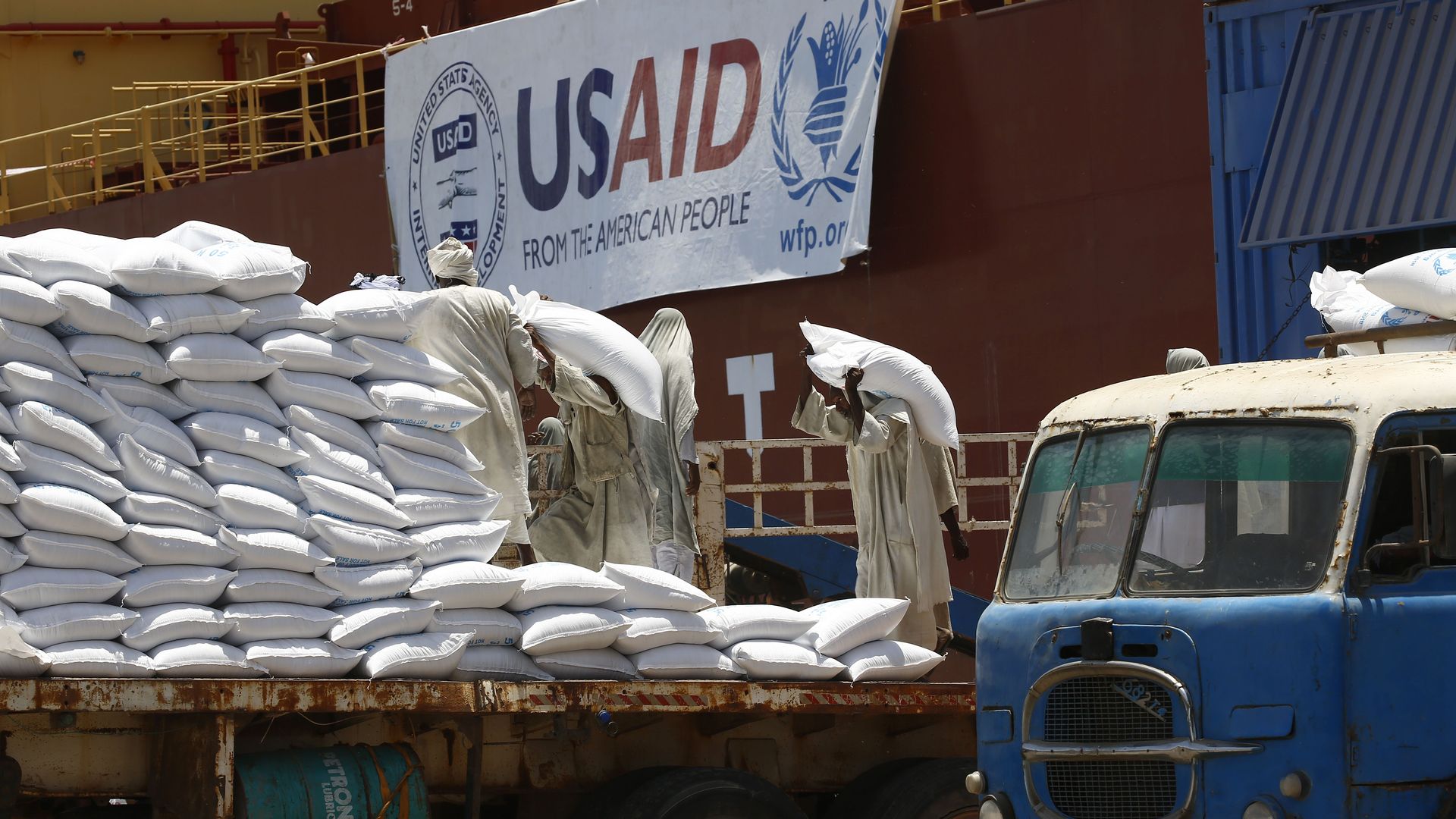Planned cuts to U.S. development funds could hurt world's neediest
Add Axios as your preferred source to
see more of our stories on Google.

Bags of sorghum from USAID being unloaded at a port in Sudan. Photo: Ashraf Shazly/AFP/Getty Images
The Office of Management and Budget (OMB) is reportedly preparing to submit this week a rescission package that could cut billions in foreign development funding — a move that would have a long-term impact on both the federal budget process and vulnerable populations around the world.
Why it matters: OMB’s plan could target global programs that reduce food insecurity, improve public health, expand energy access and combat corruption. And it would upend decades of bipartisan consensus that development funds are a valuable tool to advance America’s values and foreign policy, national security and economic interests.
Details: OMB officials have expressed a desire to cut more than $4 billion from a number of State Department and USAID accounts.
- The proposal could strike millions for UN peacekeeping activities in places like South Sudan and the Democratic Republic of the Congo, where the Ebola outbreak is now a public health emergency.
- Aid to Europe and Eurasia could be part of OMB’s rescissions, taking away a valuable diplomatic tool.
- The cuts could also include programs that combat international narcotics trafficking.
Between the lines: Although the rescission package has been presented as a deficit reduction, a roughly $4 billion cut would amount to less than 0.1% of the federal budget, making its contribution minimal even as it risks driving up long-term costs.
The impact: The proposed budget maneuver also raises balance-of-power concerns in bypassing Congress to cut funding it has already authorized. It would effectively let the executive branch undermine legislative power of the purse.
What to watch: As early as this week, President Trump could send Congress details of the administration’s requested rescissions, which a bipartisan group of lawmakers have vocally opposed.
- The plan will likely move ahead unless key players in the administration manage to derail it, as Secretary of State Mike Pompeo did to halt a similar effort last year. Pompeo and Treasury Secretary Steve Mnuchin have reportedly been in talks to scale back the cuts.
Gayle E. Smith is the president and CEO of the ONE Campaign and a former administrator of USAID.
